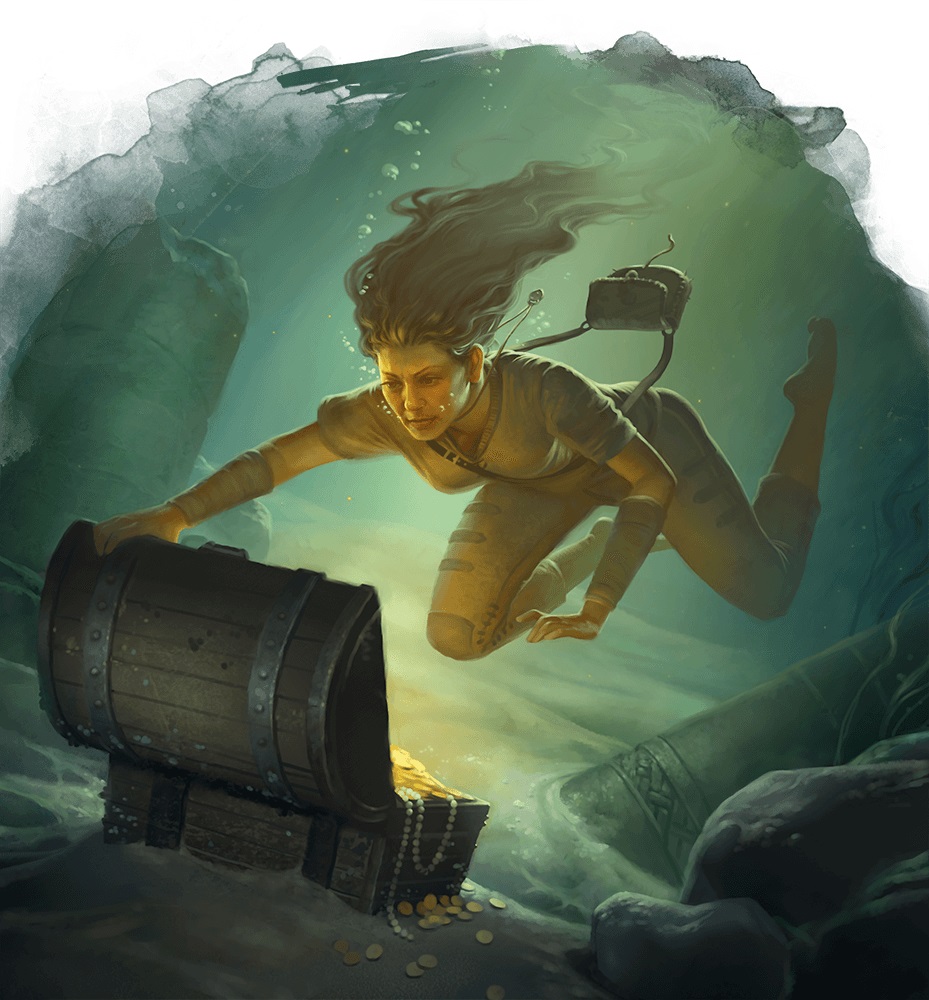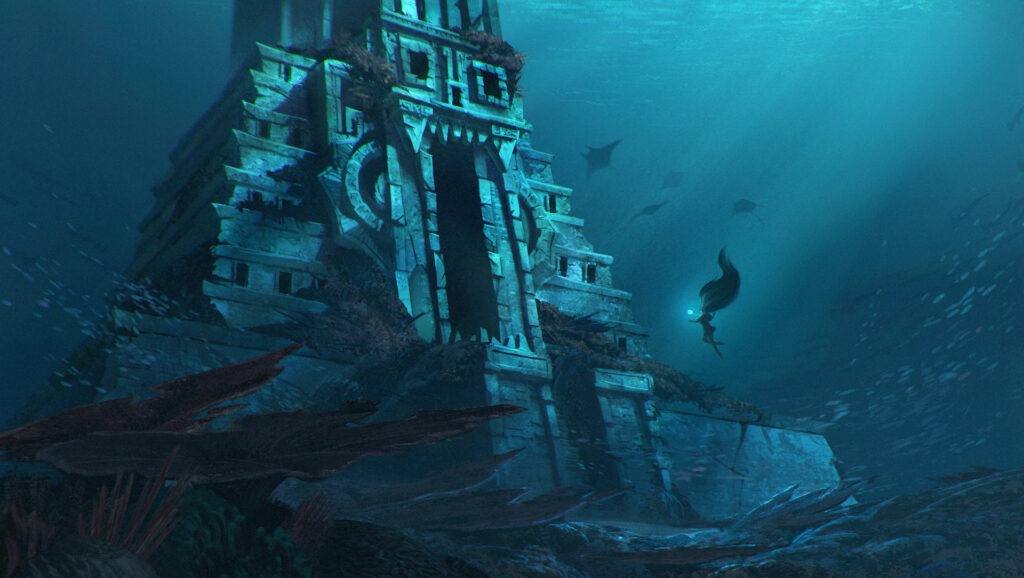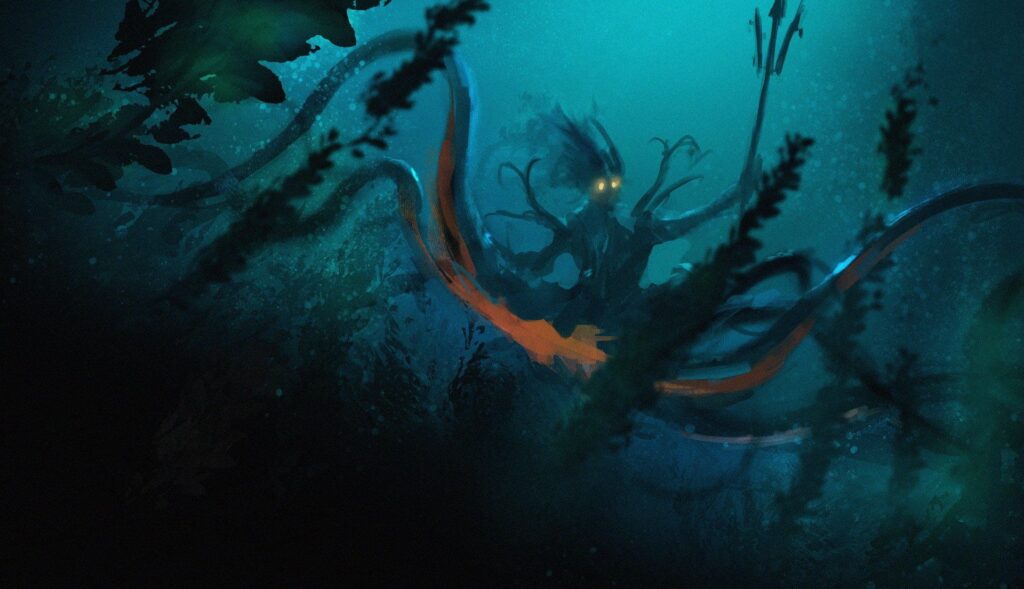
Adventuring in the watery depths offers a change of pace from typical dungeon delving or overland quests. But with this novel setting comes a plethora of unique challenges. The underwater realm is not merely a submerged version of the surface world; it is an entirely different environment with its own rules, inhabitants, and dangers. Diving deep (pun intended) into underwater adventuring in Dungeons & Dragons reveals even more complexities and considerations, especially when it comes to the equipment and magic tailored for this environment.

Gear and Equipment
Swimwear and Armor
Adventuring in full plate armor underwater is not just cumbersome but nearly impossible. Many adventurers opt for lighter armors or specially crafted armors that allow for more fluid movement in the water. Materials like manta ray hide or special enchantments can make armor more suitable for aquatic environments.
Weapons
Standard weapons may not be the best choice underwater. The water's resistance makes slashing weapons, like swords, less effective. Stabbing weapons, like tridents or spears, become the melee weapons of choice. For ranged combat, crossbows might still work, but bows become largely ineffective. Nets and harpoons can also be particularly useful, both for combat and utility purposes.
Transportation
While swimming is the most basic form of underwater movement, other means exist. Submersible vessels, magically propelled or otherwise, can transport groups quickly. Creatures like giant sea turtles or trained dolphins can also serve as mounts.
Lighting
The lack of light, especially in the deeper parts of the ocean, requires adventurers to have a reliable source of illumination. Standard torches won't work underwater. Magical items, such as Glowing Seaweed or Lanterns of Revealing, or spells like Continual Flame, become essential.
Spells and Magic

Adaptation Spells
Beyond the basic Water Breathing, spells like Freedom of Movement can help adventurers act without impediment underwater. Alter Self or Polymorph can even transform adventurers into aquatic creatures, making them naturally adept at navigating this environment.
Communication
The Message cantrip becomes invaluable underwater, allowing for whispered conversations across distances without the need for verbal shouting. More powerful spells, like Telepathy, can allow for full conversations without uttering a word.
Combat Spells
Evocation spells that rely on fire, such as Fireball, become less useful or entirely useless. However, spells like Lightning Bolt can be more potent, given water's conductive nature, though it also poses a risk to allies. Conjuration spells that summon aquatic creatures or water elementals can provide tactical advantages.
Utility Magic
Control Water can redirect currents or part a path through particularly treacherous underwater terrain. Create or Destroy Water, though more basic, can have specific niche uses, especially in puzzles or challenges designed around water manipulation.
Protection
Water Walk and Wall of Water are spells that can be of great use in specific circumstances, allowing adventurers to either retreat to the surface quickly or create barriers during combat.
Environmental Interaction
Flora and Fauna
While seaweed and coral might seem innocuous, they can be as much a boon or bane as any creature. Some corals are razor-sharp, while certain seaweeds might emit toxins. On the flip side, harvesting specific plants could yield ingredients for powerful potions or antidotes.
Treasure Hunting
Sunken ships, lost cities, or the lairs of legendary sea monsters can be sources of immense treasure. But they can also be traps waiting to be sprung. The allure of treasure can sometimes be a danger in itself, as heavy gold or artifacts might weigh down an adventurer, making a swift escape challenging.

While the aquatic realm in Dungeons & Dragons is fraught with peril, it's also filled with opportunity. With the right preparation, equipment, and spells, adventurers can turn the tide in their favor, unraveling the mysteries of the deep and emerging with both tales of legendary exploits and treasures from the abyss.
Breathing Underwater
The most immediate concern for most adventurers is the simple act of breathing. Without magic or special equipment, most player characters cannot breathe underwater. Solutions include Water Breathing spells, potions, or magical items like the Cloak of the Manta Ray. Failure to address this concern can lead to drowning, a rapid and dangerous threat to any submerged adventurer.
Impaired Movement
Navigating underwater is not as straightforward as walking on land. Characters without a natural swim speed or those not accustomed to underwater movement may find themselves at a disadvantage. Armor and heavy equipment can weigh characters down, making it harder to swim and maneuver effectively. Some spells, particularly those involving air or fire, might not function as expected or at all.
Altered Combat Dynamics
Fighting underwater presents a new set of challenges. Melee attacks, especially slashing and bludgeoning ones, are less effective due to water resistance. Ranged weapons, with the exception of specific ones like harpoons or tridents, also have limited effectiveness. Moreover, combat can occur in three dimensions, with threats coming from any direction, including from above or below.
Pressure and Depth
The deeper one goes, the greater the water pressure. Extreme depths can pose significant risks to adventurers, from the physical pressures that can harm or kill to the challenges of navigating in utter darkness of the deep sea. Magic may become essential for deep-sea exploration, both to counteract the pressure and to provide illumination.
Unique Fauna and Flora
The underwater realm is home to a myriad of creatures that adventurers might not encounter elsewhere, from benign but massive whales to predatory sharks, krakens, and merrow. There are also sentient underwater races like merfolk, sahuagin, and kuo-toa, each with their own societies and intentions-be they friendly, neutral, or hostile.
Environmental Hazards
Apart from creatures, the environment itself can be a danger. Powerful currents can sweep adventurers away, plunging them into deeper waters or smashing them against rocky outcrops. There are also underwater volcanoes, geysers, and trenches to contend with. Natural phenomena like whirlpools can trap and drown the unwary.
Communication and Magic
Speaking underwater can be impossible without magic. This limitation can prevent coordination between party members and negotiation with underwater inhabitants. Many spells that rely on verbal components or specific gestures might be harder or impossible to cast underwater.
Cold and Hypothermia
Unless in tropical waters, the temperature can drop significantly as one descends. Prolonged exposure can lead to hypothermia, a condition where the body loses heat faster than it can produce, leading to a host of physical impairments and, if not treated, death.
Underwater adventuring in Dungeons & Dragons offers an exotic and challenging environment, demanding preparation, adaptability, and respect for the unique dangers it presents. While fraught with peril, the mysteries and treasures of the deep can make the risks worthwhile for those brave enough to plunge into the abyss.

Consider reading about Table of Ships.






